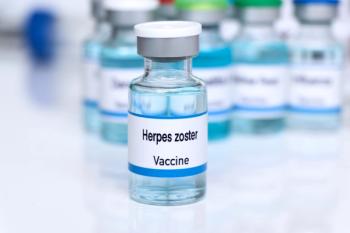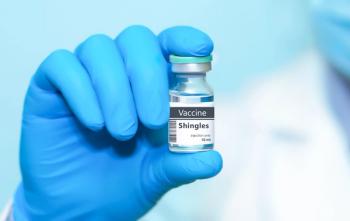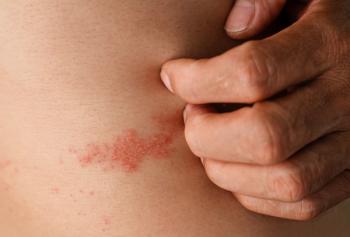
Shingrix Reduces HZO, Cardiovascular Risk, Study Finds
Vaccination reduced the risk of heart attack and stroke as well as the risk of herpes zoster ophthalmicus,
New evidence bolsters the case that getting a shingles vaccine not only reduces the risk of herpes zoster infection but also appears to reduce the risk of cardiovascular complications of shingles.
Both heart attack and stroke are more common in patients who have had shingles, and previous research has suggested that preventing shingles can also lower the risk of those cardiovascular complications. However, there is relatively little evidence looking at the cardiovascular benefits of the recombinant zoster vaccine (RZV) rather than its live-attenuated predecessor.
For instance, a
Some of the explanations for the association between shingles and increased risk of cardiovascular events hinge on evidence that shingles can damage blood vessels, stir up inflammation and contribute to blood clot formation. By preventing shingles, vaccination may lower those risks. Some
Rayens and colleagues said most of the data related to the shingles vaccine and cardiovascular risk was based on the live-attenuated zoster vaccine, which Merck and Co. sold under the brand name Zostavax. In 2017, the FDA approved the RZV Shingrix, which was developed by GSK. Clinical data suggested it is more effective than the live attenuated vaccine, which is no longer available in the US.
Rayens and colleagues said existing studies looking at Shingrix and its effect on cardiovascular risk have had mixed results, with some finding a benefit from the vaccine and some finding no significant difference between vaccinated and unvaccinated individuals. The purpose of the new study was to better understand how well the vaccine worked against both HZO and cardiovascular complications of shingles.
The investigators identified 102,766 people who were at least 50 years of age and received 2 doses of RZV between 4 weeks and 6 months apart between April 2018 and December 2020. Those participants were matched on a 1 to 4 basis with unvaccinated controls who were of similar ages, sexes and races/ethnicities. All of the participants were members of Kaiser Permanente Southern California. The median age of participants was 68 years; 59% of participants were female and 57% were non-Hispanic White. Participants were followed through the end of 2022, unless certain other events came first, such as death or termination of Kaiser Permanente membership.
In terms of HZO prevention, the investigators found the shingles vaccine was largely effective, with an adjusted hazard ratio (aHR) comparing vaccinated and unvaccinated participants of 0.271. Put another way, people who were vaccinated were 73% less likely to get HZO than people who were unvaccinated. The vaccine was also associated with a reduced risk of hospitalization for acute myocardial infarction hospitalization (aHR 0.720, or a 28% decrease in risk) and stroke (aHR 0.575, or a 43% decrease in risk).
“This is one of the first real-world studies contributing evidence on RZV immunization and the reduced risk of HZO, hospitalized AMI [acute myocardial infarction], and hospitalized stroke,” Rayens and colleagues wrote in the discussion section of the paper.
The investigators had
Although their data suggest a significant drop in cardiovascular risk among RZV-vaccinated patients, the authors cautioned that it was not possible to look specifically at the risk of shingles-associated AMI and stroke; instead, the data report on the association between vaccination and all-cause AMI and stroke.
Newsletter
Get the latest industry news, event updates, and more from Managed healthcare Executive.























